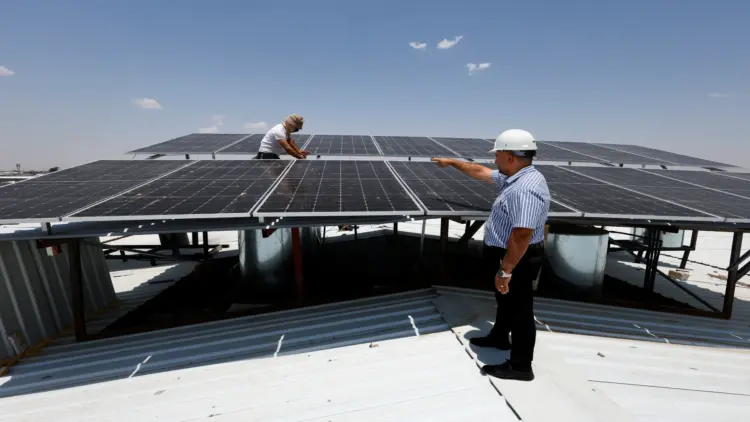Germany’s solar industry faces a critical juncture as Economy Minister Katherina Reiche’s proposal to eliminate subsidies for new rooftop photovoltaic systems threatens to undermine the country’s renewable energy transition at a time when Europe’s largest economy desperately needs to accelerate its shift away from fossil fuels. This contentious policy debate highlights the fundamental tension between fiscal constraints and climate commitments, as the government grapples with mounting pressure to reduce public spending while maintaining momentum toward its ambitious target of generating 80% of electricity from renewable sources by 2030, creating uncertainty that could significantly impact both industry investment decisions and Germany’s broader energy security strategy.
Industry Opposition to Proposed Changes
Germany’s solar industry warned on Tuesday against ending subsidies for new rooftop photovoltaic systems, as proposed by the economy minister, arguing that withdrawing support for small installations would jeopardise the country’s climate goals.
The feed-in subsidies were introduced 25 years ago to aid an expansion of the solar power sector by providing a guaranteed price for renewable energy producers selling their power onto the grid.
They have helped Germany make progress towards its target of covering 80% of its electricity consumption needs with renewable sources by 2030.
But Europe’s biggest economy is struggling to grow following two consecutive years of contraction, and government finances are under pressure as it seeks to boost defence spending, revive industry and renew ageing infrastructure.
Minister’s Rationale for Reform
Economy Minister Katherina Reiche in an interview with the Augsburger Allgemeine newspaper published on Sunday said that new small rooftop systems, which benefit mainly private households, no longer needed public funding.
“New, small PV systems are already profitable in the market today and don’t require any subsidies,” she said, adding that system operators could also bear some of the costs of grid expansions needed to accommodate growing solar power generation.
However, Carsten Koernig, the head of the German solar industry federation, said the subsidy provided necessary security for the financing banks. Without them, he added, only four out of ten customers would still purchase a solar power system for their homes.
“The subsidy is already clearly paying off for society as a whole,” Koernig told Reuters.
The minister’s proposal reflects broader concerns about the sustainability of Germany’s renewable energy financing model, particularly as the country faces mounting fiscal pressures from multiple directions including defense spending increases, industrial competitiveness challenges, and infrastructure modernization needs. Critics argue that while small-scale solar installations may appear economically viable on paper, the removal of guaranteed feed-in tariffs could create significant market uncertainty that would deter both residential customers and financial institutions from investing in distributed solar generation.
Stakeholder Concerns and Political Divisions
As the government works to meet its renewable power generation target, it will need to leverage rooftop solar capacity by making it more attractive to small producers, Berlin-based renewable energy firm Enpal said.
“What is beyond question is that this requires a reliable regulatory framework,” a spokesperson for the company told Reuters.
Reiche’s proposal to curtail subsidies comes as the solar sector is already facing slowing demand due to rising interest rates, a shifting political climate and general economic uncertainty.
It also contradicts policies agreed between Reiche’s conservative CDU party and its governing partner, the Social Democrats (SPD), when they formed an alliance earlier this year, according to the SPD’s energy policy spokesperson.
“We agreed in the coalition agreement that we want to make private households the actors in their own energy supply,” Nina Scheer told Reuters. “We now need progress in the expansion of storage and not uncertainty.”
Germany’s solar subsidy debate represents a defining moment for the country’s energy transition, where short-term fiscal pressures risk undermining long-term climate and energy security objectives. The outcome will determine whether Germany maintains its leadership in renewable energy deployment or allows economic constraints to derail its ambitious decarbonization goals.
GCN.com/Reuters.


